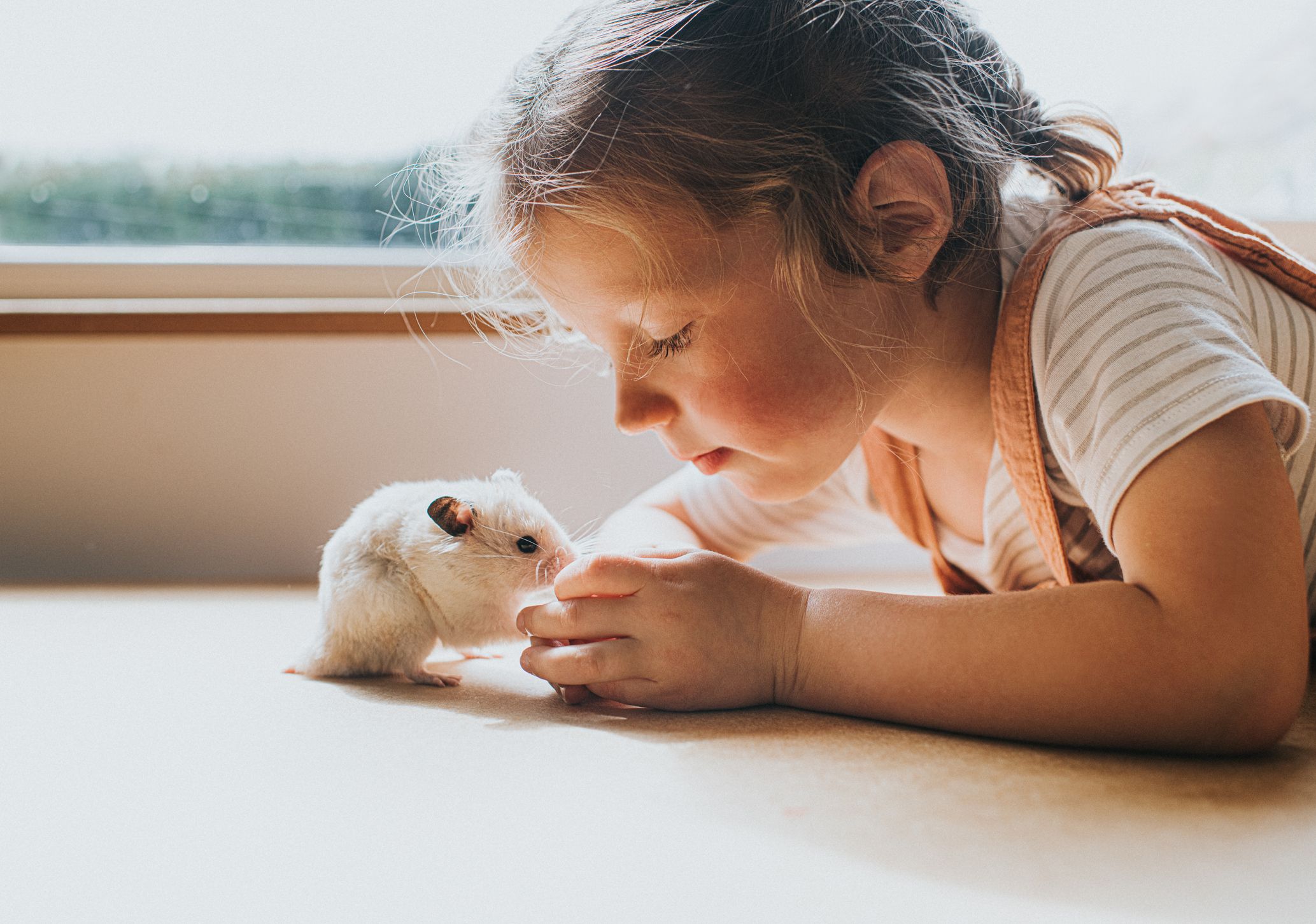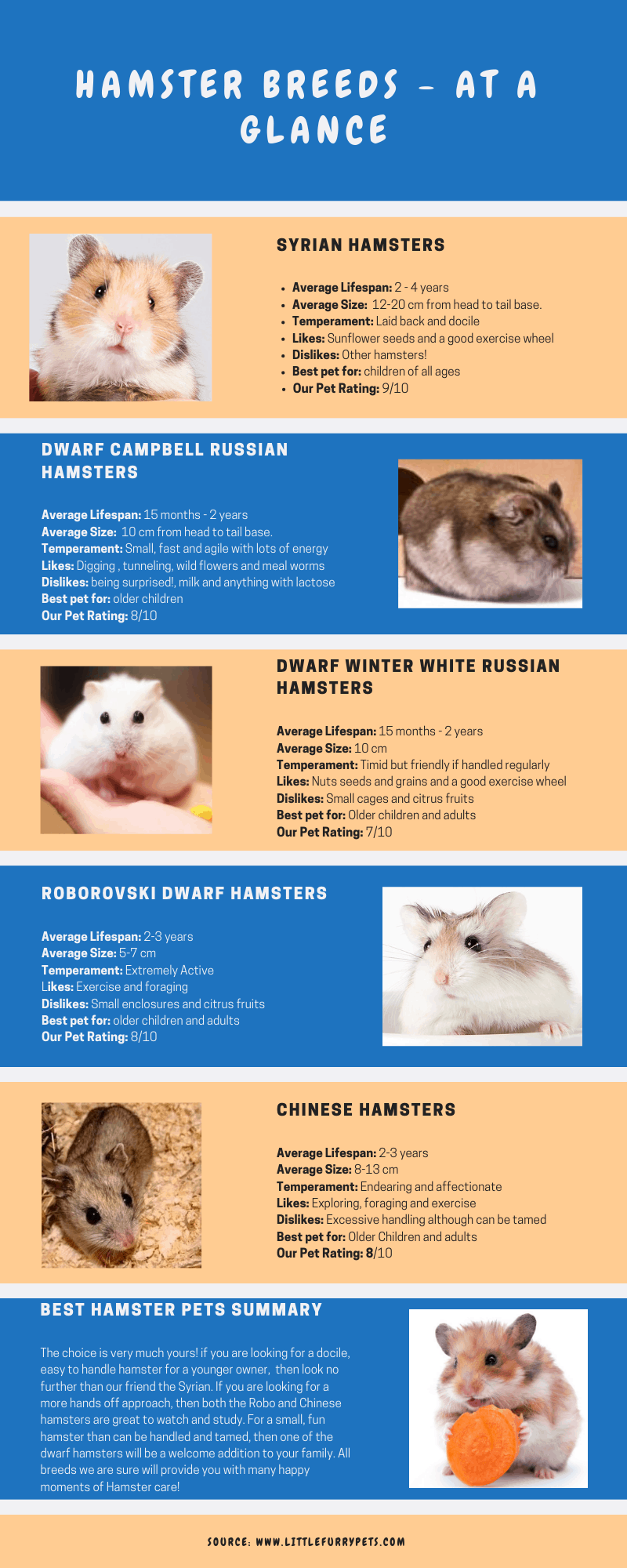Best Hamster Breeds for Senior Owners
Choosing a pet can be an incredibly rewarding experience, especially for seniors looking for companionship. One of the best options for this demographic is adopting a hamster. They are small, low-maintenance, and provide plenty of joy. This article will explore the best hamster breeds that are particularly suitable for senior owners, considering factors like temperament, ease of care, and overall compatibility. Let’s dive into these delightful little creatures!
Understanding Hamster Temperaments
For seniors, the temperament of a hamster is crucial. Some breeds exhibit gentle and calm behaviors, making them ideal companions. Understanding hamster temperaments can ensure that the pet you choose aligns with your lifestyle and personality. Hamsters are known to be relatively solitary animals; however, certain breeds tend to be more social than others. For example, the **Syrian hamster**, often referred to as the **golden hamster**, is known for its friendly disposition, which makes it an excellent option for seniors. They typically enjoy human interaction and will readily accept gentle handling.
The Syrian Hamster: A Perfect Companion
The Syrian hamster has long been a favorite among pet owners due to its charming personality and ease of care. They are known to be affectionate and enjoy human interaction, especially if handled from a young age. With their larger size compared to other hamster breeds, seniors may find them easier to handle. Moreover, Syrian hamsters are typically not aggressive and tend to be relatively active during the day, aligning well with the routines of older individuals.

Other Friendly Breeds
While the Syrian hamster is a prime choice, other breeds also deserve attention. The **Roborovski hamster** is another excellent option for seniors. These hamsters are known for their inquisitive nature and won’t require as much handling as larger breeds. This can make them suitable for those who prefer to admire their pet rather than hold it frequently. Due to their small size, they are playful and energetic, offering entertainment without needing constant attention.
Care and Maintenance of Hamsters
Caring for a hamster is a straightforward process which makes them suitable for seniors. Generally, hamsters require minimal equipment and can easily be maintained in a standard hamster cage. Furthermore, regular maintenance such as cleaning the cage every week and ensuring a consistent supply of fresh food and water can contribute to the pet’s health. This can often be managed without any strain, making it favorable for senior citizens.
Setting Up the Ideal Habitat
An important aspect of hamster care is maintaining an ideal habitat. A secure and spacious cage allows room for a wheel, tubes, and toys to keep your hamster entertained. Using **aspen bedding** or **paper-based bedding** not only offers comfort but also helps manage odors. Moreover, placing the cage in a low-traffic area of your home ensures that your hamster feels secure and comfortable, creating a calming environment for both pet and owner.
Feeding and Nutrition
Feeding your hamster a balanced diet is crucial for their overall health. Opt for a high-quality hamster mix that includes seeds, grains, and pellets, complemented with small portions of fresh vegetables and occasional fruits. Ensure that pet food is stored properly to maintain freshness. Also, providing a steady supply of clean water through a water bottle can make hydration easy and mess-free, an essential consideration for seniors with limited mobility.
Handling and Socialization
Proper handling can greatly enhance the bond between seniors and their hamsters. Gently approaching your hamster and allowing it to become accustomed to your presence will make for easier socialization. Most hamsters may be shy initially; however, patience is key. Offering treats can encourage your pet to come close, gradually building trust. This gentle interaction can foster a rewarding companionship, crucial for anyone seeking emotional support.
Socializing Your Hamster
To ensure that your hamster remains friendly, it’s important to interact with it regularly. Short, daily sessions of handling will help socialize your pet, and they tend to bond very closely with their owners. Simply sitting beside them while they explore their cage can become a cherished routine. This constant engagement can also stimulate mental activity in both the hamster and the owner, benefiting both parties.

Signs of a Happy Hamster
Understanding your hamster’s body language can enhance the bond between pet and owner. Engaged hamsters will often exhibit playful behaviors, such as running on their wheel, burrowing, or exploring their surroundings. Additionally, they will make cheerful squeaking sounds, often when excited or during playtime. Keeping an eye on these signs can provide satisfaction for owners, confirming that they have made a good choice in selecting a hamster for companionship.
Consulting a Veterinarian
Regular check-ups with a veterinarian experienced in small animals can promote the long-term health of your hamster. Ideally, seniors should have a good understanding of their hamster’s health signs, including activity levels, dietary needs, and hygiene. Consulting the vet about any significant changes or concerns can contribute to proactive care. Additionally, you can ask for tips that pertain directly to your pet’s breed and individual requirements.
Common Health Issues in Hamsters
Hamsters, despite being generally low-maintenance, can sometimes experience health issues. Some common concerns include wet tail, respiratory problems, and dental issues. By observing your hamster regularly and responding promptly to health concerns, you can ensure your pet remains healthy. Knowing what signs to look for can be immensely helpful for seniors who are committed to their animal’s wellbeing.
Emergency Preparedness
It’s crucial to have a plan in place for emergencies. Ensuring immediate access to a veterinarian, being informed about the signs of distress in your hamster, and having a basic first-aid kit on hand can create a safer environment. By keeping contact information readily available, seniors can maintain peace of mind knowing they can act swiftly if necessary. Preparing for any potential health emergencies goes a long way in ensuring a healthy relationship between owner and pet.
Conclusion
Selecting the best hamster breed for senior owners combines understanding temperament, care needs, and the joy a hamster can bring into daily life. The **Syrian hamster**, **Roborovski hamster**, and other breeds tailor perfectly to a satisfying, interactive experience without overwhelming responsibilities. By prioritizing gentle handling and proper care, seniors can find great satisfaction and connection with their hamster companions. Now, let’s delve into some frequently asked questions about this delightful rodent.
FAQ
1. What specific care do hamsters require that is suited for seniors?
Hamsters are relatively low-maintenance pets, requiring basic necessities such as clean bedding, a proper cage environment, a balanced diet, and fresh water. Setting up a manageable cleaning schedule can allow senior owners to maintain their pet’s health without excessive strain.
2. How often should I interact with my hamster?
Daily interaction helps strengthen the bond between the owner and hamster. Short play and handling sessions each day can provide the social connection that hamsters thrive on while allowing seniors to enjoy devoted companionship.
3. Are hamsters good pets for those with limited mobility?
Yes, hamsters are suitable for seniors with limited mobility. Their small size allows for easy housing and care without needing much physicality. Additionally, their habitat setup can often be done on a stationary option where reachability is a priority.
4. What is the lifespan of a typical hamster?
On average, hamsters live between 2-3 years, with proper care and attention, some even can reach up to 4 years. This relatively short lifespan allows for various pets throughout the years without overwhelming commitment but provides ample joy during their time with owners.
5. What kind of toys should I provide for my hamster?
Hamsters enjoy a variety of toys, including tunnels, wheels, and chew toys. Providing a stimulating environment with multiple enrichment options keeps them active and mentally engaged, essential for both their happiness and health.
6. Can hamsters be kept together, or are they solitary?
Most hamster species, like the Syrian, are solitary and should be housed individually to prevent fights. However, dwarf varieties can occasionally live together if introduced at a young age and housed sufficiently apart from aggressive behaviors.
7. What should I do if I notice my hamster is not acting normally?
If your hamster displays any signs of illness, such as lethargy, lack of appetite, or unusual behavior, consult a veterinarian promptly. Early intervention can significantly increase the likelihood of a successful recovery.
